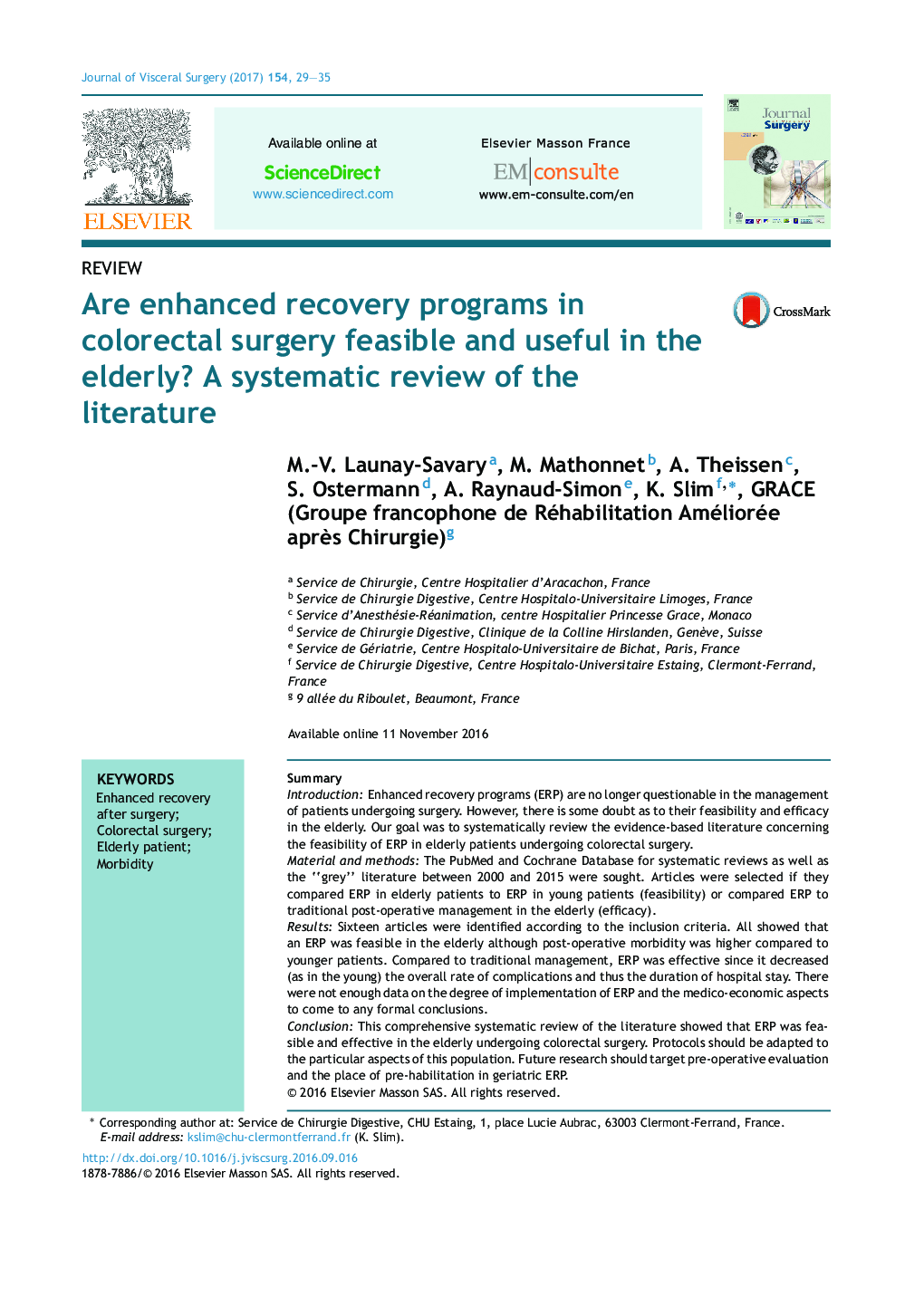| Article ID | Journal | Published Year | Pages | File Type |
|---|---|---|---|---|
| 5661015 | Journal of Visceral Surgery | 2017 | 7 Pages |
SummaryIntroductionEnhanced recovery programs (ERP) are no longer questionable in the management of patients undergoing surgery. However, there is some doubt as to their feasibility and efficacy in the elderly. Our goal was to systematically review the evidence-based literature concerning the feasibility of ERP in elderly patients undergoing colorectal surgery.Material and methodsThe PubMed and Cochrane Database for systematic reviews as well as the “grey” literature between 2000 and 2015 were sought. Articles were selected if they compared ERP in elderly patients to ERP in young patients (feasibility) or compared ERP to traditional post-operative management in the elderly (efficacy).ResultsSixteen articles were identified according to the inclusion criteria. All showed that an ERP was feasible in the elderly although post-operative morbidity was higher compared to younger patients. Compared to traditional management, ERP was effective since it decreased (as in the young) the overall rate of complications and thus the duration of hospital stay. There were not enough data on the degree of implementation of ERP and the medico-economic aspects to come to any formal conclusions.ConclusionThis comprehensive systematic review of the literature showed that ERP was feasible and effective in the elderly undergoing colorectal surgery. Protocols should be adapted to the particular aspects of this population. Future research should target pre-operative evaluation and the place of pre-habilitation in geriatric ERP.
